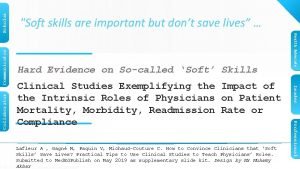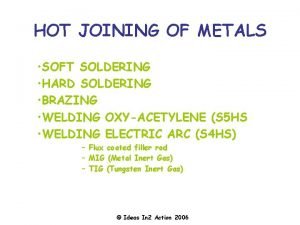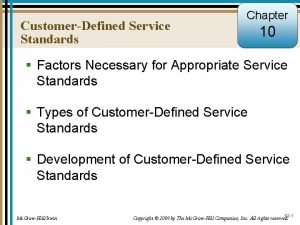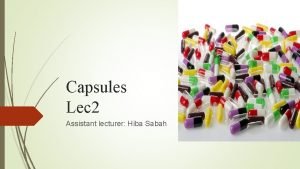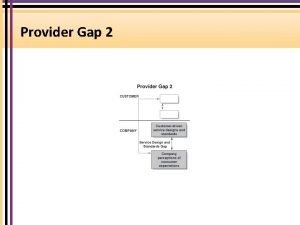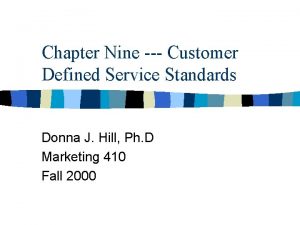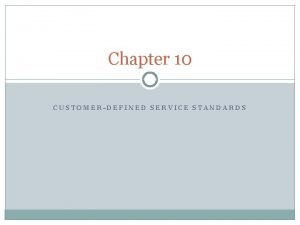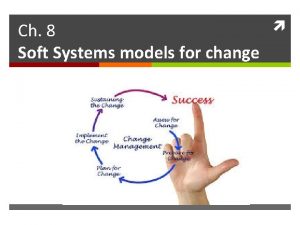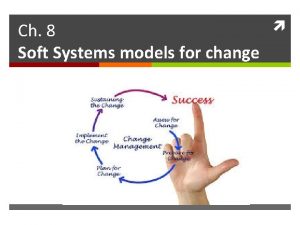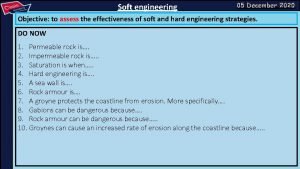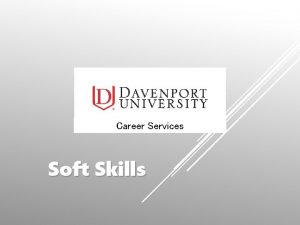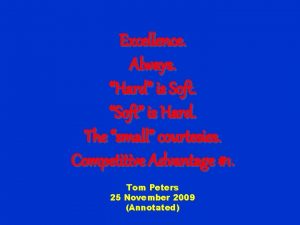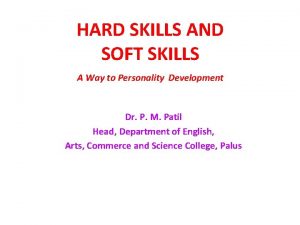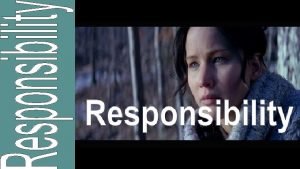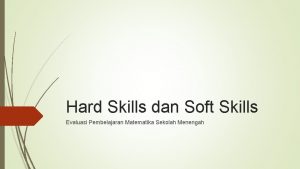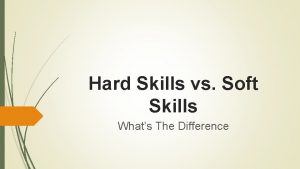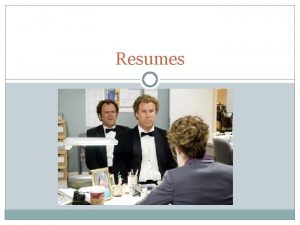What are your skills Soft Skills and Hard
















- Slides: 16

What are your skills? Soft Skills and Hard Skills • Soft skills relate more to emotional intelligence and are natural abilities that help us interact well with others. • Hard skills, on the other hand, are usually job-specific skills that are learned through education or training. *A survey presented by SMB World found that nearly 72% of CEOs believe that soft skills are more important to the success of their business than hard skills.

Some soft skills examples • Ability to multi-task • Excellent communication skills (being both a good listener and speaker) • Strong work ethic (including motivation and determination) • Team work (ability to perform in groups through cooperation and leadership) • Flexibility and adaptability and ability to work under pressure • Positivity and enthusiasm • Patience

10 Soft Skills for Teaching

1. COMMUNICATION: Receptive and Expressive Communication skills You may have experienced: • Providing written and verbal feedback • Interacting with parents, students and the administration • Running meetings • Organizing teams • Collaborating with other schools v Clarity v Verbal communication v Confidence v Non-verbal v Respect communication v Empathy v Written communication v Listening v Constructive feedback v Friendliness * Children are now more comfortable texting and using technology than speaking face to face

2 – TEAMWORK • Teamwork skills allow you to operate well in a group setting in the workplace to quickly and effectively accomplish tasks. • Conflict management • Delegation • Listening • Active listening • Collaboration • • • Cooperation Coordination Idea exchange Mediation Negotiating *Remember that having solid communication skills is the foundation of strong teamwork.

3– ADAPTABILITY 5 STRATEGIES TO TEACH THIS SKILL OF THE FUTURE • Adaptability and flexibility are related skills and are about embracing and rolling with change. • Focus on interdisciplinary learning. • Teach resilience. • Promote self-regulation. • Dispel the fear of failure. • Encourage continuous learning.

4 – PROBLEM SOLVING Students, administrators and fellow teachers continually call on a teacher to solve problems as part of their day-to-day work. It might be differentiating instruction for diverse learners within the classroom or adjusting to the ever-changing demands of the public education system. Problem-solving skills allow teachers to ensure that every student gets what they need to succeed in the education system. Ø Analysis Ø Lateral thinking Ø Brainstorming Ø Logical reasoning Ø Decision making Ø Initiative Ø Supporting studendts Ø Persistence Ø Observation with special needs Ø Maximizing the Ø Persuasion potential of gifted and Ø Negotiation talented students

5 - CREATIVITY Creativity is a broad type of soft skill that can help you develop innovative solutions to problems at work. Types of creative skills include: Ø Divergent thinking Ø Innovation Ø Inspiration Ø Experimenting Ø Imagination Ø Questioning Ø Reframing Ø Design Ø Mind mapping Ø Insight

6 – WORK ETHIC Work ethic is a soft skill that proves your belief in the importance of work and its ability to strengthen your character. Demonstrating work ethic should be important in every career, but is vital for first responders, teachers, and nurses. Soft skills examples related to work ethic include: Ø Dedication Ø Commitment Ø Responsibility Ø Self-motivated Ø Discipline Ø Professionalism Ø Initiative Ø Teamwork Ø Time-management

7 - SOCIAL AND EMOTIONAL INTELLIGENCE SKILLS Feelings like stress and frustration affect performance as a teacher and interactions with students. Show: Ø You're capable of managing your own emotions in high-pressure situations without becoming overwhelmed. Ø You can connect with students and create an emotional bond to facilitate a safe, calm and supportive classroom environment. Teachers must be able to de-escalate conflicts, empathize with students who are experiencing extreme emotions, and build trust to facilitate learning. Ø Empathy Ø Patience Ø Humour Ø Tolerance Ø Mentoring Ø Public speaking Ø Networking Ø Positive Ø Sensitivity reinforcement Ø Diplomacy

8 - TIME MANAGEMENT Time management skills demonstrate your ability to work efficiently and productively by using your time wisely. Employers need to know that you can manage your time and responsibilities concerning your students and your school. The best teachers are self-motivated and find time to go above and beyond for their students Ø Goal setting Ø Focus Ø Prioritizing Ø Delegation Ø Self-starter Ø Stress management Ø Planning Ø Coping Ø Decision making Ø Organization

9 – LEADERSHIP Leadership is a soft skill that enables you to guide others while you fulfil the goals and mission of your organization. Leadership is critical for entrepreneurs, all types of management, and careers in teaching. Ø Project management Ø Cultural intelligence Ø Empathy Ø Authenticity Ø Selflessness Ø Versatility Ø Agility Ø Generosity Ø Listening Ø Trust Ø Humility

10 – ATTENTION TO DETAIL Attention to detail allows you to be both thorough and accurate in your work. Ø Critical observation Ø Introspection Ø Memory Ø Listening Ø Acuity Ø Organization Ø Recall Ø Scheduling Ø Questioning Ø Analysis

Your English teacher resume will focus on the key duties including: • Preparing appropriate lesson plans • Using differentiated learning strategies and techniques • Creating a student - centered classroom environment • Conducting assessments and preparing students for testing • Establishing cooperative relations with others

How to express these skills through examples • Coordinated, scheduled and arranged meetings and travel calendars • Interacted with students and parents profesionally by phone, e-mail or in-person to provide information • Worked with students with special educational needs • Dealt with problematic situations, such as fights, bullying and harassment. • Mentored troubled students • Adopted distinctive teaching methodologies • Implemented a new way of educating students to help them become critical thinkers • Developed learning programs for individual needs and adapt appropriate materials accordingly • Monitored and supported the social and emotional needs of students • Maintained discipline in accordance with the rules and disciplinary systems of the school • Collaborated regularly with staff members to chart the progress of each child • Planned and implemented a protocol for laboratory work

Communications skills interview 1. Talk about a successful presentation you gave and why you think it did well. 2. Do you prefer written or verbal communication? Why? 3. Describe a time when you had to be careful talking about sensitive information. How did you do it? 4. Is it more important to be a good listener or a good communicator? 5. Tell me about a time you had to relay bad news to a friend or colleague. 6. Rate your communication skills on a scale of 1 to 10. Give examples of experiences that demonstrate the rating is accurate. 1. Describe your communication skills. 2. Describe your planning process for a new project or study unit
 Insidan region jh
Insidan region jh Soft skills vs hard skills worksheet pdf
Soft skills vs hard skills worksheet pdf Conclusion for soft skills
Conclusion for soft skills Hard evidence on soft skills
Hard evidence on soft skills Difference between hard and soft gelatin capsule
Difference between hard and soft gelatin capsule Hard soldering
Hard soldering Hard and soft service standards examples
Hard and soft service standards examples Minim per gram factor
Minim per gram factor Which of the following factors leads to provider gap 2?
Which of the following factors leads to provider gap 2? Hard gelatin capsules vs soft gelatin capsules
Hard gelatin capsules vs soft gelatin capsules Hard and soft service standards examples
Hard and soft service standards examples Hard customer defined standards
Hard customer defined standards Soft system model of change
Soft system model of change Hard and soft system model of change
Hard and soft system model of change Confidential
Confidential Where is chambamontera located
Where is chambamontera located Hard and soft science
Hard and soft science



